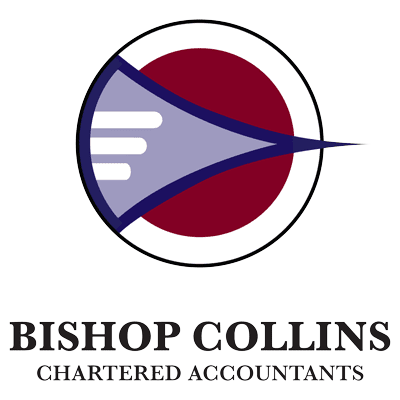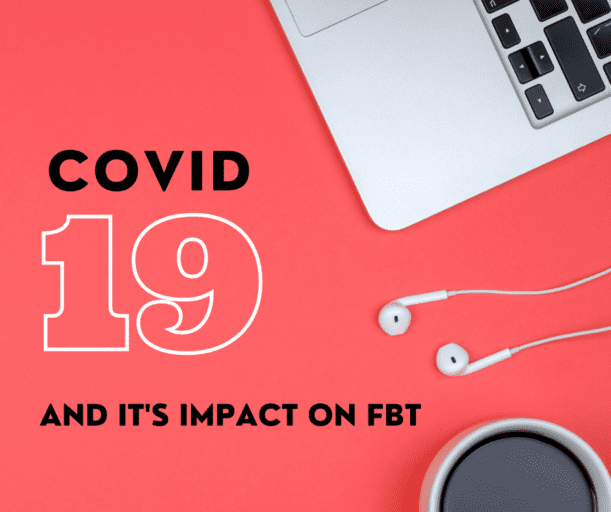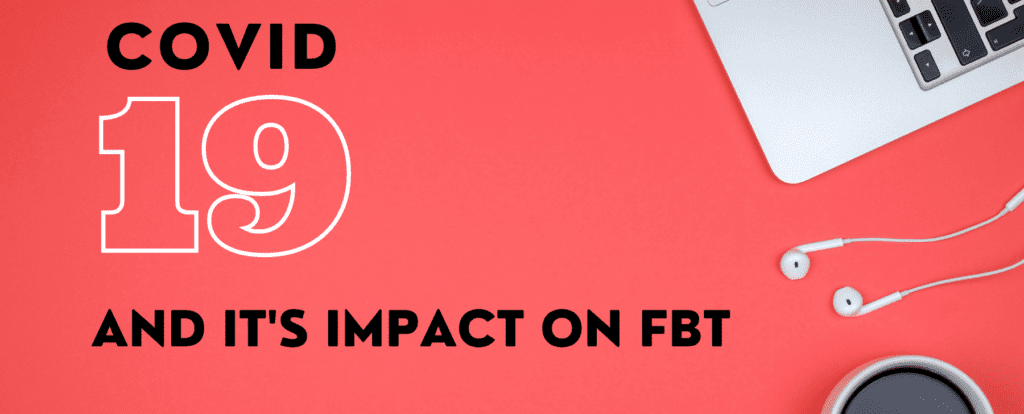
Glenn Harris
Director
Fringe Benefits Tax ( FBT ) Concession and COVID-19
The COVID 19 lockdown has created changes to how and where many of your employee’s work. To support your employees to work remotely, you may have incurred additional costs. In your haste to organise these changes, the last thing you probably considered was the Fringe Benefit Tax ( FBT ) impacts of providing this support?
The Australian Taxation Office (ATO) recently announced concessions to support employers to reduce their FBT liability and record keeping requirements. It’s important you understand these concessions as there may be significant FBT savings for your company.
Before we jump into the recently announced concessions from the ATO the following is a brief recap on FBT:
What is FBT?
Very simply FBT is an additional tax paid by employers on the taxable value of “non-cash” benefits provided to employees. Fringe Benefit Tax was introduced in 1986 to improve equality in the taxation system. It was designed to overcome a deficiency in the tax system where an employer paid benefits to an employee, other than salary and wages, which were tax free. The current FBT rate is equal to the top marginal tax rate plus Medicare levy.
What benefits are Taxable?
FBT is payable on a wide variety of benefits. Some of which may not be initially obvious, such as allowing staff to use the company’s lifestyle assets for personal use. Some common taxable fringe benefits include:
| · Motor Vehicles | · Car Parking |
| · Entertainment | · Expense payments |
| · Loans | · Debt waiver |
| · Housing | · Living away from home allowances |
Just remember you are only taxed on the “private” portion of the benefit provided. Calculating the taxable value of fringe benefits can be complex and onerous record keeping rules apply.
A minor benefits exemption may also apply for minor, infrequent and irregular benefits under $300.
Further information of the most common types of fringe benefits can be found on the ATO website.
COVID-19 and FBT Concessions
The following is a summary of the recent updates provided by the ATO on how they will approach the assessment of FBT because of COVID-19:
Type of Benefit |
ATO Approach as a result of COVID-19 |
|
Not-for-profit salary packaging
|
The ATO will not apply compliance resources to scrutinise expenditure under these arrangements for the:
· FBT year ending 31 March 2021 – where meals are provided by a supplier that was authorised as a meal entertainment provider as at 1 March 2020 · FBT year ended 31 March 2020 – when restaurants and public venues were closed |
| Working from Home |
The ATO reminds employers where staff are working from home one of the following exemptions may apply: Items used primarily for work including. · Laptops · Printers · Other electronic devices Where the minor benefits exemption or otherwise deductible rule may apply: · Set up a home office. · Make the home workplace safe. · Provide office equipment, consumables etc.
|
| Car Parking |
· If car parks were closed due to COVID-19 there will be no parking benefit · This also applies to the closure of work car parks. · If, on 1 April 2020, the lowest fee charged by all the commercial parking stations within a one kilometre radius of your business premises for all-day parking was less than $9.15, you will not have provided a car parking benefit. |
| Car returned to employer’s premises |
During a period of COVID-19 restrictions, a car that you have provided to your employee is not taken to be available for your employee’s private use if all the following apply: · The car is returned to your business premises. · Your employee cannot gain access to the car. · Your employee has relinquished an entitlement to use your car for private purposes |
|
Garaging work cars at your employees’ homes
|
You may have been garaging work cars at your employees’ homes due to COVID-19. You may not have an FBT liability depending on: · the type of vehicle · how often the car is driven, and · the calculation method you choose for car benefits. |
| Log Books |
Your employees’ driving patterns may have changed because of COVID-19. If they have an existing logbook you can still rely on this logbook to make a reasonable estimate of the business kilometres travelled.
|
|
Accommodation, food, and transport
|
You will not have to pay FBT if you provide emergency accommodation, food, transport, or other assistance to an employee if: · the benefit is emergency assistance to provide immediate relief, and · the employee is, or is at risk of being, adversely affected by COVID-19.
|
|
Items that help protect employees from COVID-19.
|
You may need to pay FBT on items you give your employees to help protect them from contracting COVID-19 while at work. These may include gloves, masks, sanitisers and anti-bacterial spray. However, these benefits are exempt from FBT under the emergency assistance exemption if you provide them to employees: · who have physical contact with – or are in close proximity to – customers or clients while carrying out their duties, or · are involved in cleaning premises.
|
|
Emergency health care
|
There is a limited exemption from FBT if you provide emergency health care to an employee affected by COVID-19. It only applies to health care treatment provided: · by an employee of yours (or an employee of a related company) · on your premises (or premises of the related company) · at or adjacent to an employee’s worksite. If you pay for your employee’s ongoing medical or hospital expenses, FBT applies.
|
|
Flu vaccinations for employees working from home.
|
You will not have to pay FBT for providing your employees with a voucher or reimbursement for getting the flu vaccine from a GP or chemist as long as it is available to all employees.
|
|
COVID-19 testing
|
You will not have to pay FBT for providing COVID-19 testing to employees if both of the following apply: · testing is carried out by a legally qualified medical practitioner or nurse, and · testing is available to all employees.
|
| Cancelled events.
|
You will not have to pay FBT if you are required to pay non-refundable costs for cancelled events your employees were due to attend. This is because: · the arrangement was between you and the event organisers, not your employees, and · you have not provided any fringe benefits to your employees as they did not get to attend the event.
|
Other Considerations- Work Health and safety
It’s not only tax considerations you need to consider when employees are working from home. For example, the NSW Work Health and Safety Act 2011 also applies to employees who are working remotely. Employee safety at work should always be a priority and as an employer you must ensure your employees working remotely have safe working conditions. It’s your responsibility to identify any potential risks. Further information can be found on the NSW Government SafeWork website including appropriate checklists to support you in ensuring your employees have a safe workspace.
Previously we have written an article on logbook records and car fringe benefits that you can read to find out more information about recording in your log book.



